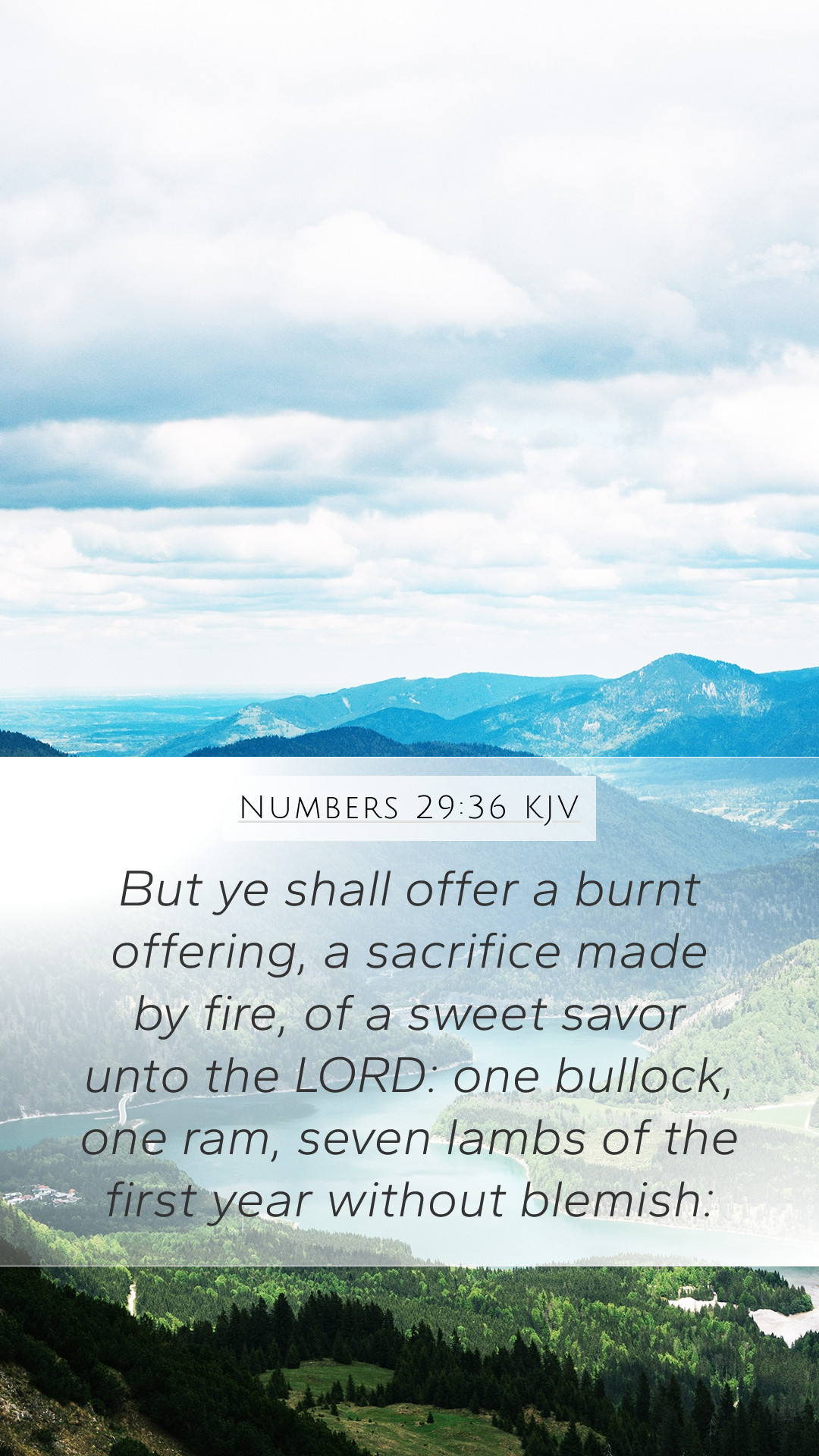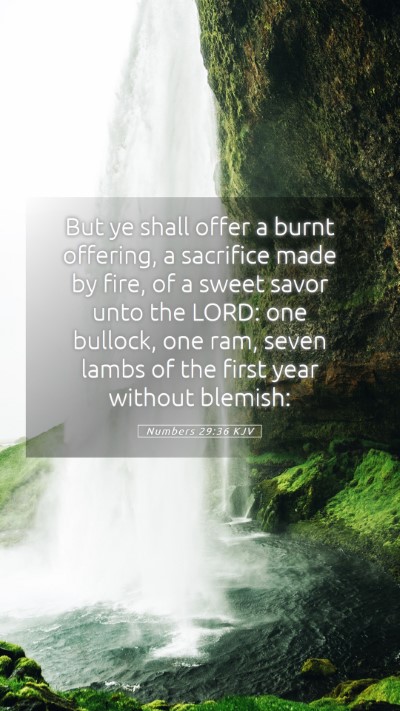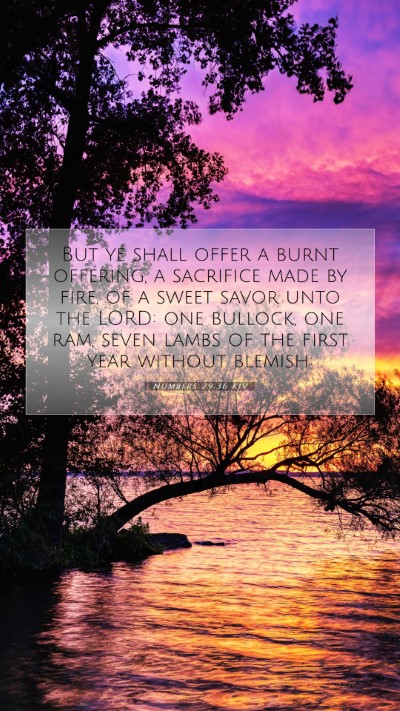Understanding Numbers 29:36
Verse: Numbers 29:36 - "And thou shalt offer a bullock for a sin offering, a ram for a burnt offering, and seven lambs of the first year without blemish." This verse is a key part of the sacrificial system laid out in the Pentateuch, specifically detailing offerings during the Feast of Tabernacles.
Bible Verse Meaning and Interpretations
The meaning of Numbers 29:36 can be unraveled through several insightful commentaries that expound on its significance within the broader framework of Scripture and Jewish practice. Various scholars and theologians have analyzed this verse, shedding light on its implications for worship, sacrifice, and the relationship between God and His people.
Matthew Henry Commentary
Henry highlights that this verse emphasizes the importance of sin offerings and how they were integral to the Israelite's worship. He notes that the bullock for the sin offering represents a form of atonement, reinforcing the idea that sin must be addressed for communion with God. The ram and the seven lambs symbolize the dedication and commitment of the people to God, showcasing the necessity of both confession and gratitude in worship.
Albert Barnes Commentary
Barnes elaborates on the ritualistic nature of the offerings outlined in this verse. He points out that such sacrifices were not simply traditions but vital elements of the covenant relationship between God and Israel. The specific mention of offerings during the Feast of Tabernacles underscores a time of reflection and thanksgiving, reminding the Israelites of their deliverance and dependence on God for sustenance and forgiveness.
Adam Clarke Commentary
Clarke's commentary reflects on the unique characteristics of the offerings. He explains that the choice of a bullock, ram, and lambs underscores the gravity of sin and the necessity for diverse offerings to atone for different aspects of wrongdoing. Clarke also notes that the 'first year' designation of the lambs signifies purity and the standard of excellence in what is being offered to God.
Key Insights
- Sacrificial System: Numbers 29:36 illustrates the comprehensive sacrificial system intended to engage believers in worship and repentance.
- Symbolism of Offerings: The distinctions among the types of animals for sacrifice convey various theological truths about sin, atonement, and God’s holiness.
- Feast of Tabernacles: The timing of these offerings during a significant Jewish festival reflects a communal act of worship and remembrance.
Application and Reflections
This verse invites individuals engaged in Bible study to consider how sacrificial practices mirrored the necessity of turning away from sin. As modern readers, we can reflect on how the essence of sacrifice still exists in our spiritual lives, calling us to seek forgiveness and to approach God with a heart full of gratitude.
Cross References
- Leviticus 4:32-35: Discusses the sin offering and its requirements.
- Hebrews 9:22: Explains the concept of blood as essential for forgiveness.
- John 1:29: Recognizes Jesus as the Lamb of God, connecting themes of sacrifice throughout the Bible.
Conclusion
The understanding of Numbers 29:36 enriches our Bible verse analysis and encourages deeper engagement with the text. Grasping the elements of biblical exegesis in this verse can promote not only a greater knowledge of Scripture but also cultivate an attitude of worship and dedication in our personal faith journeys.


